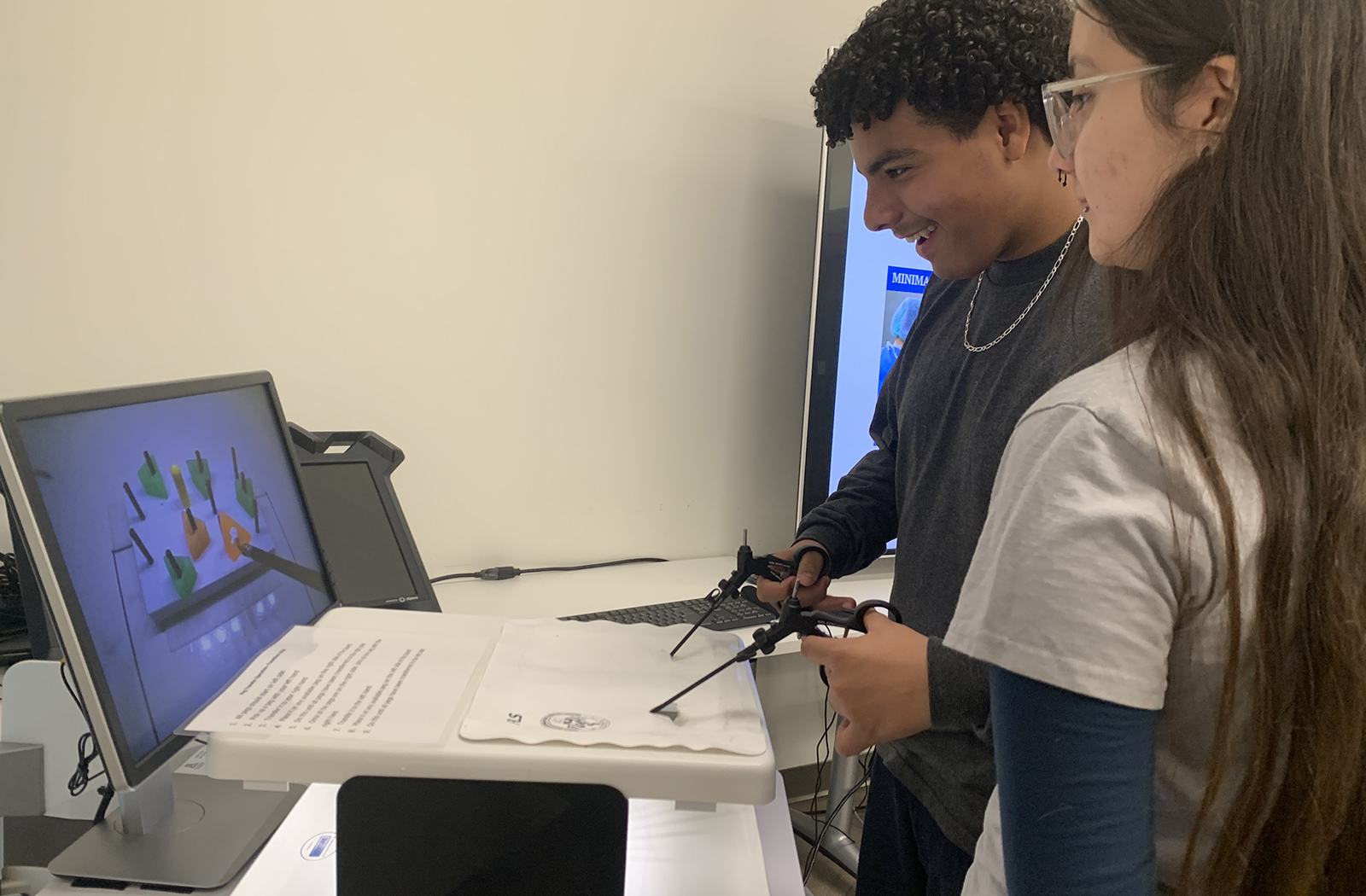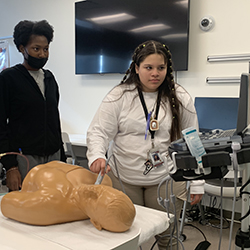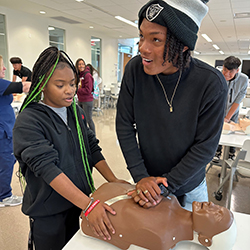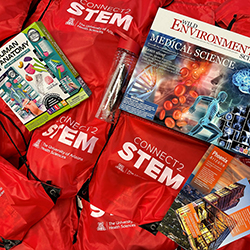
Junior Medicine Program Introduces Local Youth to the Wonders of Medicine


Their immersive day on campus began with a tour of the Health Sciences Library and Medical Museum, where they engaged with medical students — learning about their respective journeys to medical school. Their next stop was the University of Arizona College of Medicine – Phoenix’s Center for Simulation and Innovation. They participated in hands-on simulation activities, including CPR techniques, ultrasounds and ophthalmologic exams. Each student also practiced listening to the heart and taking blood pressure, the basics of splinting and wrapping injuries, and were taught the essential functions of the heart and brain.
Claudia Whitehead, Bioscience Healthcare program manager for the City of Phoenix, was ecstatic with the results of the inaugural event. “The City of Phoenix was proud to partner with the University of Arizona Health Sciences and the Cartwright School District to provide an inspiring day of wonder and curiosity to these 8th graders,” she said. “The engaging, hands-on ‘Junior Med’ experience designed by the College of Medicine – Phoenix medical students created relatability for the 8th graders who ended the day beaming with greater confidence and hope for their own future opportunities. I have no doubt there are future doctors among the group!”

“The majority of these students would be first generation college students, who may not be aware of the educational opportunities ahead of them. Some may come across opportunities that exist later in high school, but this timing may be later than optimal,” Kisiel said. “We understand that by providing these kids early exposure via participation in hands-on activities and discussing the educational opportunities beyond high school, we could foster excitement about the trajectory of their education and future careers.”
Logan-Baca shared in that sentiment, noting their hope for the Junior Medicine Program is to ignite the students’ passion for health care and higher education.
That hope seems to have not only been met but exceeded. Jessica Hauer, director of STEM, College and Career Readiness and Special Areas at Cartwright Unified School District, shared how the principal of Estrella Middle School, Jennae Brittain, felt Junior Med should be a model for all future field trips.
“Her students were so motivated by the trip that they returned to her campus with a new sense of purpose in their learning,” Hauer said. “They explained to her that they walked away from this experience truly feeling that they have opportunities to succeed in life after middle school.”

The Junior Medicine Program is funded through community support of the Gila River Indian Community. The next Junior Medicine event will take place in March 2024, and the plan is for it to be a multi-year endeavor. Schools who are interested in participating can contact Caroline Berger for more information.
About the College
Founded in 2007, the University of Arizona College of Medicine – Phoenix inspires and trains exemplary physicians, scientists and leaders to advance its core missions in education, research, clinical care and service to communities across Arizona. The college’s strength lies in our collaborations and partnerships with clinical affiliates, community organizations and industry sponsors. With our primary affiliate, Banner Health, we are recognized as the premier academic medical center in Phoenix. As an anchor institution of the Phoenix Bioscience Core, the college is home to signature research programs in neurosciences, cardiopulmonary diseases, immunology, informatics and metabolism. These focus areas uniquely position us to drive biomedical research and bolster economic development in the region.
As an urban institution with strong roots in rural and tribal health, the college has graduated more than 1,000 physicians and matriculates 130 students each year. Greater than 60% of matriculating students are from Arizona and many continue training at our GME sponsored residency programs, ultimately pursuing local academic and community-based opportunities. While our traditional four-year program continues to thrive, we will launch our recently approved accelerated three-year medical student curriculum with exclusive focus on primary care. This program is designed to further enhance workforce retention needs across Arizona.
The college has embarked on our strategic plan for 2025 to 2030. Learn more.